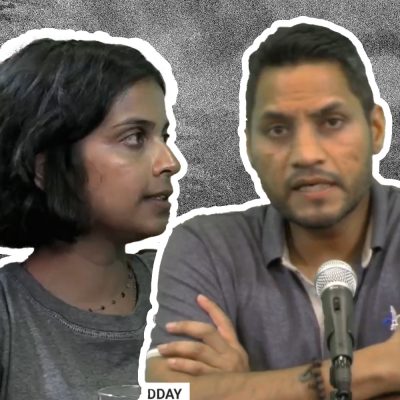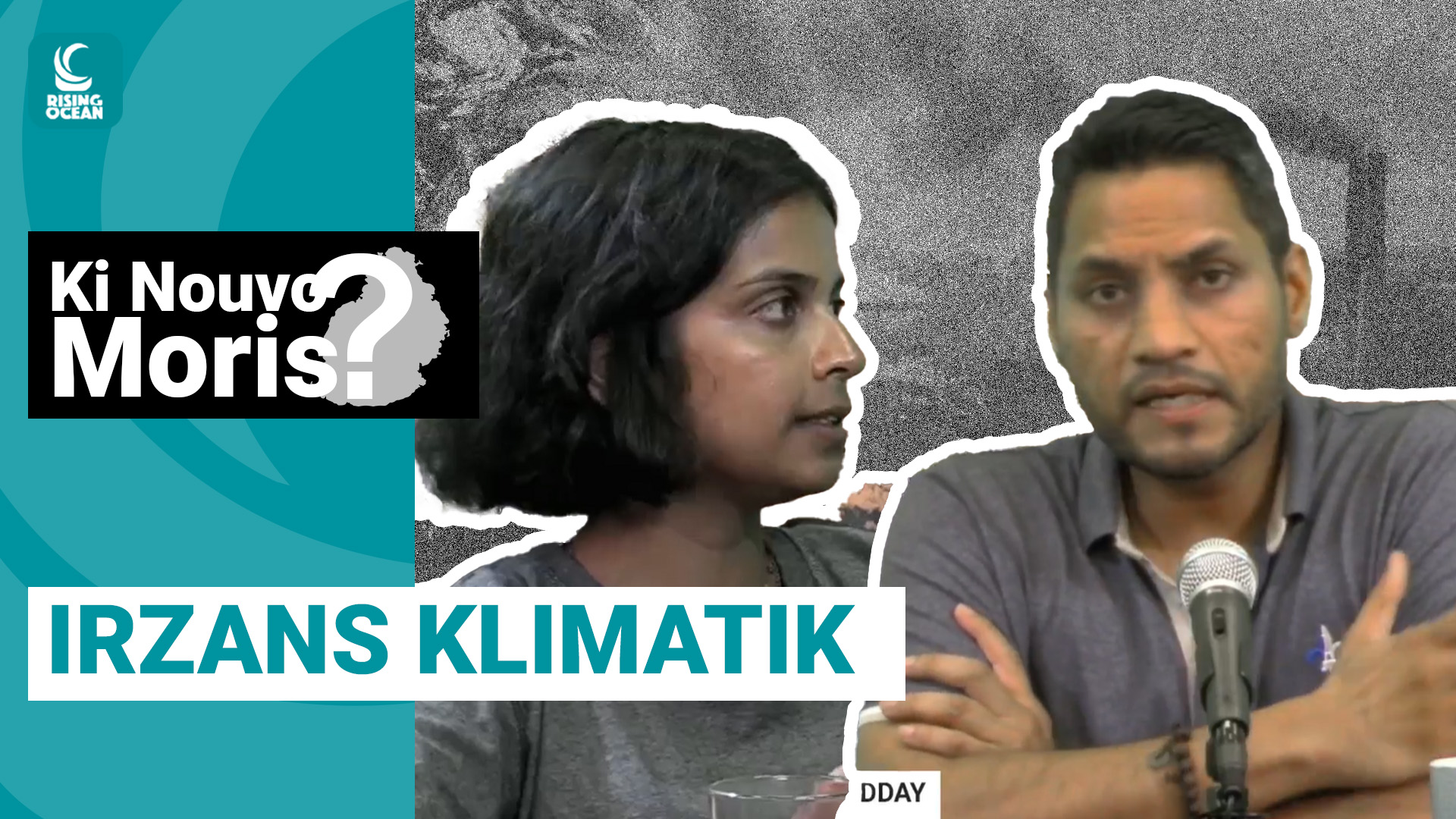With Global Warming, many ecologically fragile areas are under threat, and we are seeing a loss in terrestrial and marine biodiversity. With shipping gaining ground, over-fishing and pollution threatening our waters, it is essential to raise awareness about the concept of a climate emergency. To address the subject, the ki nouvo moris set invited the scientist and activist Shaama Sandooya. Ashvin Gudday was the moderator.
What is the assessment of the climate crisis?
The global temperature of the year 2023, has touched 1.5°C compared to the previous year. As a reminder, the 1.5°C is the limit that was set by The Paris Agreement that 196 countries have ratified. It is the first report of universal international agreement on the fight against global warming.
“We’re not even getting to 2025, and we’re close to the 1.5 °C.”
The ecological disasters have obviously increased, for example the torrential rains that fell on the island at the beginning of November. This phenomenon is not just in Mauritius, other countries have experienced floods that have lasted for several days, forest fires have become more frequent and heat waves have intensified, and all of this is the cause of global warming, says Shaama.
“The problem is that all of these extreme events have only happened in one year. This demonstrates the scale and seriousness of the situation.”
We have reached a point where the climate problem is affecting the social life of the country and also the way the country operates. Indeed, those who work in fields in contact with nature are the most vulnerable to the climate crisis. Farmers and fishermen struggle to work.
The fact that Mauritius is unable to counter the climate effects in 2023 is alarming because it does not bode well for the years to come. Moreover, international politics does not seem to understand the urgency of the situation in which the world finds itself. The big countries are doing nothing to try not to get close to the 1.5 °C mark off, they do not hesitate to destroy entire cities with highly polluting weapons that massacre the population but also fragile ecological areas. Even the leaders of Mauritius are only talking about policies aimed at cementing the country to create more profit through the real estate sector. It is true that the domestic laws of Mauritius leave room for real estate developers to engage in construction such as smart cities near fragile areas with high biodiversity such as wetlands and coastal areas.
“When I see how politics is done in Mauritius, I tell myself that the leaders don’t care about the ecological crisis that the country is experiencing. If that were the case, there would not have been a policy that favors concrete and destroys the ecosystem even more.”
Apart from political decision-makers, is the capitalist system also the cause of the climate crisis?
The climate crisis is closely linked to the capitalist system, says Shaama Sandooya. All these companies that over exploit the earth’s resources, are responsible for what is happening today, because they are the ones who are plundering the forests and extracting oil for profit.
“They are extracting oil knowing it’s contributing to the climate crisis, and they don’t care about it, and they keep extracting it.”
It is more than obvious that it is the profit-first economic model that is responsible for everything that happens in the world.
Everyone knows that Mauritius is vulnerable to this situation, however, two years ago, our leaders before participating in the COP, passed a law aimed at allowing the extraction of oil in our sea.
“We are in an emergency because we have seen through the ecological disaster caused by the sinking of the Wakashio how oil is harmful to the environment and the climatic conditions in our sea are getting worse.”
In addition to this, we need to educate people about the climate crisis and how important it is to preserve our natural resources. It is unfortunate to see that people think that development must always be the slaughter of nature. Indeed, this is what the system wants them to believe so that it does not object to the numerous ecological massacres during the construction of hotels and so on. We talk about the Blue Economy, but everyone has their own definition of it highlights Shaama Sandooya.
Watch the debate here:


